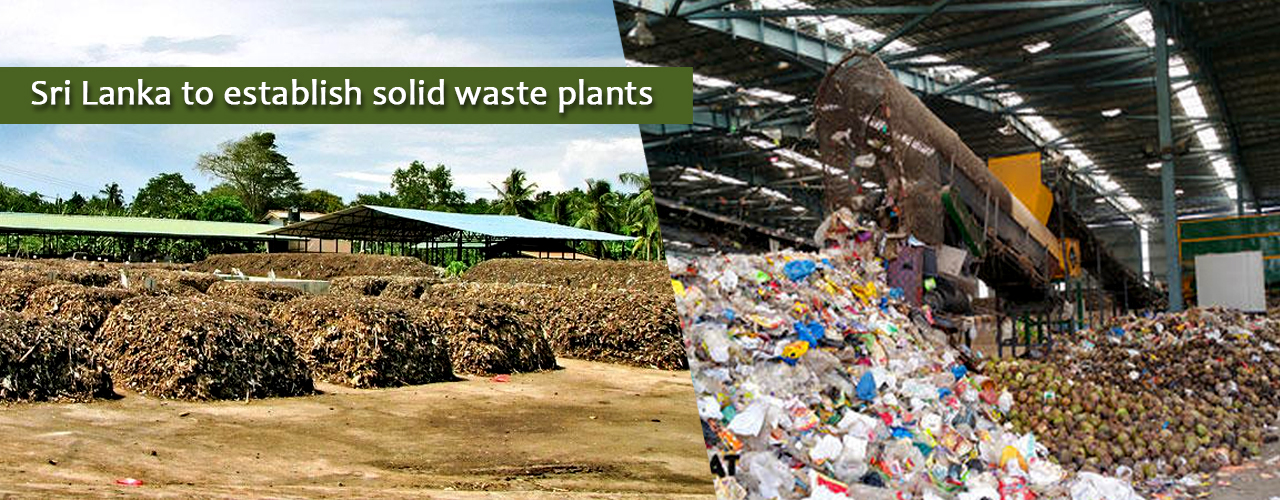Sri Lanka to establish solid waste plants
Sri Lanka has been facing a crisis which centered around collection of garbage which even resulted in a tragedy earlier in the year. Since then a much-renewed focus has been allocated to finding a permanent and sustainable solution to the solid waste problem. For this, many initiatives have been suggested, one being establishing solid waste plants which will generate electricity using the discarded waste.
Sri Lanka will commence operations in Muthurajawela for two such solid waste plants in the coming months with the total value of the investment estimated at USD 193 million according to Ministry of Megapolis and Western Province Development. The two plants combined is expected to add 20 megawatts to the national grid. The plants will primarily look to use the solid waste collected from the areas of Gampaha and a Colombo for the project.
The first project run by the Western Power Company, a fully-owned subsidiary of Aitken Spence Plc will contribute to process 700 metric tons of waste generated from Colombo daily with an investment of USD 98 million. The second project which will generate 10 Megawatts, is owned by the Korean company called K.C.H.T Jang under a public private partnership, will process up to 630 metric tons of solid waste daily.
Also, a third project is expected at an investment of USD 91 million according to the ministry with all three projects expected to complete within a 2-year period. Following the PPP model, a waste treatment plant will be built in Karadiyana with Fairway Holdings.
These projects bring about a change that is much overdue and a step above the using of solid waste as Landfills or compost.
OSL Take
With the garbage problem being a sensitive area in both public and the political arena, these projects come at an ideal time. With the potential to transform solid waste to energy it will also act as pilot projects for those who wish to enter the same industry. Generating of energy by using solid waste, is also a greener initiative than using fuel based energy sources and will likely go a long way towards improving Sri Lanka’s commitment to use of sustainable and green energy sources.
However, with the estimates suggesting that Western Province is responsible for 60% of the entire nation’s waste with 3,400 metric tons of waste being generated per day, the plants are only a starting point. There needs to be many more plants of the same nature to really effect a change in waste management.
| Article Code : | VBS/AT/28082017/Z_2 |

